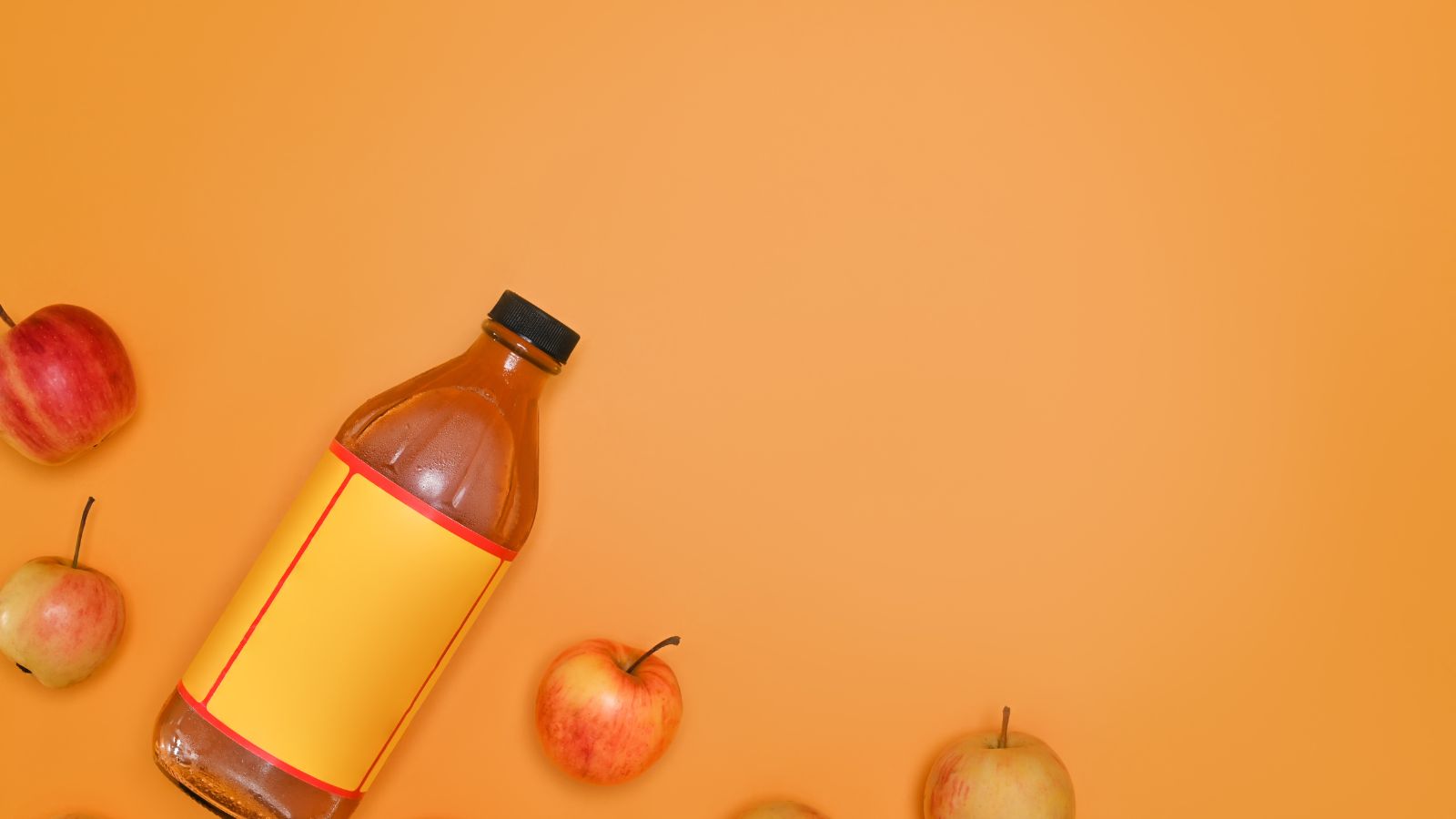
Champagne Vinegar Substitute Guide: Top Picks & How to Use Them
Photo Credit: Canva Pro
Looking for something other than champagne vinegar? This guide will help you find the best alternatives, whether you're done with it or just need something else.
We'll talk about the different kinds of vinegar, show you how to make your own, and let you know when to switch it out or not. You'll also find out what makes it different from other vinegars and where to get good ones. We don't need champagne vinegar for your recipe to work.
What Is the Best Champagne Vinegar Substitute?
Photo Credit: Canva Pro
Top Substitutes Ranked by Flavor Similarity
What you should use instead of champagne vinegar depends on the dish and how you like your food to taste. Something that can be used instead of champagne vinegar should have a light, slightly sweet taste and a mild sourness to it. The acidity and taste of these choices are very similar.
-
Rice wine vinegar: It is made from fermented rice and has a subtle sweetness and mild acidity—ideal for salad dressings or light sauces
-
White wine vinegar: A tangier option but still mild; it offers a clean finish and works in most recipes that call for champagne vinegar.
-
Sherry vinegar: Deeper, more complex. Sherry vinegar's flavor has nutty, rich tones—use less to avoid overpowering your dish.
-
Apple cider vinegar: Made from fermented apple cider, it brings a slightly fruity flavor and is ideal for slaws, marinades, and dressings.
-
Red wine vinegar: Strong and bold, red wine vinegar works better in meat dishes, stews, or sauces—not in light or fruity recipes.
-
Lemon juice or citrus juice: A great emergency option. It mimics acidity but lacks the fermented depth—best used raw.
-
Prosecco vinegar: It shares a similar lightness and sweetness, though differences in grape varieties and production methods may subtly affect the final flavor.
When to Use Each Substitute in Cooking
Every vinegar or juice is different in how it works. Choose based on how the dish looks, tastes, and feels.
-
For light dressings and vinaigrettes: Rice wine vinegar, white wine vinegar, or prosecco vinegar offer a balanced tang without overpowering.
-
For marinades and glazes: Sherry vinegar and apple cider vinegar add fruity or savory depth to poultry, fish, or veggies.
-
For reductions or cooked sauces: Balsamic vinegar gives body and sweetness but may alter color—use in rich dishes only.
-
For cold or raw applications: Lemon juice and citrus juice give brightness and freshness when vinegar isn't available.
-
For bold or meat-based recipes: Red wine vinegar and sherry wine complement strong ingredients with their intense character.
What Is the Difference Between White Wine Vinegar and Champagne Vinegar?
Photo Credit: Canva Pro
Flavor, Acidity & Composition
Although they look alike, champagne vinegar and white wine vinegar are not the same thing. They are both fermented, but they start with different base wines and end up with different amounts of acidity.
-
Champagne vinegar: Traditionally made from Chardonnay or Pinot Noir grapes used in sparkling wines from France’s Champagne region.
-
White wine vinegar: Made from fermented white wine; sharper, more acidic, with a tangy flavor and slightly stronger finish.
-
Acetic acid content: White wine vinegar typically has a higher acetic acid content—often around 6% compared to champagne vinegar's 5%—giving it a sharper bite.
-
Flavor profile: Champagne vinegar offers a subtle sweetness and fruity flavor, ideal for delicate dishes.
Best Culinary Uses for Each
Every vinegar is good for different things in the kitchen. Picking the right one will help your recipe, not make it too complicated.
-
Champagne vinegar works best: In salad dressings, vinaigrettes, seafood, and fruit-based dishes where a light touch is key.
-
White wine vinegar suits: Pickling, sauces, and any dish that benefits from a sharp kick without too much sweetness.
-
Avoid white vinegar: Due to its strong acidity and neutral flavor, is better suited for pickling or cleaning tasks rather than recipes requiring nuanced flavor.
-
Great in drinks: Champagne vinegar and prosecco vinegar can be used in certain cocktails, such as shrub-based drinks, where a mild tangy acidity is desired,
How to Make Champagne Vinegar at Home
Photo Credit: Canva Pro
Ingredients You’ll Need
You can use leftover champagne to start vinegar, but successful fermentation requires careful monitoring to avoid spoilage or contamination. Natural fermentation is used in the process to make a vinegar that tastes like mild sparkling wine.
-
Leftover champagne or prosecco wine: Acts as the base—use good-quality wine for better flavor.
-
Wide-mouth glass jar: Allows air in for fermentation.
-
Plastic wrap with holes: Covers the jar while letting natural bacteria do their job.
-
Optional mother vinegar: Speeds up the process by adding acetic acid bacteria.
-
Time: Leave it for 4–6 weeks in a dark, warm place.
Step-by-Step Instructions
It's simple and doesn't take much work, but you have to be patient. During fermentation, natural bacteria turn the alcohol into acetic acid.
-
Step 1: Pour the sparkling wine into a clean glass container.
-
Step 2: Cover with plastic wrap, poking a few holes to allow air in.
-
Step 3: Place the jar in a dark, room-temperature spot for 4 to 6 weeks.
-
Step 4: Smell and taste it; when tangy and slightly sweet, it’s ready.
-
Step 5: Strain and bottle your vinegar. Store it in a cool, dark place or refrigerate.
-
Bonus tip: Label the bottle with the type of wine and date made for consistent flavor tracking.
Is Champagne Vinegar the Same as Rice Vinegar?
Photo Credit: Canva Pro
Flavor Comparison and Texture
People often get champagne vinegar and rice vinegar mixed up because they both taste mild and are a light color. But they are slightly different in how acidic, sweet, and where they come from. Knowing how they taste helps you choose which one to use based on your personal taste and the needs of the recipe.
-
Champagne vinegar: Made from wine produced in the champagne region, it has a milder taste and delicate acidity.
-
Rice vinegar: Made from fermented rice, it's common in Asian cuisine and slightly sweeter in comparison.
-
Texture: Both are light and thin, making them good for salad dressings and cold dishes.
-
Flavor: Champagne vinegar is crisp and floral; rice vinegar is sweet and mellow.
When You Can Substitute One for the Other
You can use either vinegar in many recipes as long as you know how it will change the taste. If you don't have champagne vinegar, you can use rice vinegar instead, and if you want a different taste, you can use champagne vinegar instead of rice vinegar.
-
For raw dishes: Use rice vinegar as a best substitute in sushi rice or Asian-style salads.
-
For dressings and marinades: Champagne vinegar provides a milder taste that won’t overwhelm other ingredients.
-
When recipe calls for one: Swap only if the dish is flexible with flavour profile.
-
Adjust for sweetness: If using rice vinegar instead of champagne vinegar, reduce any added sweeteners.
What Can FullyHealthy Offer If You’re Looking for Champagne Vinegar or Alternatives?
Napa Valley Naturals Champagne Vinegar
FullyHealthy has a number of good alternatives, such as high-quality champagne vinegar. It's a flexible ingredient made for people with special dietary needs, and you can get it at any grocery store.
-
Made from: Champagne grapes aged in oak barrels for flavor depth.
-
Perfect for: Salad dressings, light marinades, and delicate reductions.
-
Diet-friendly: AIP-compliant, Paleo, Whole30, low-carb.
-
Available at: FullyHealthy, not always found in your local supermarket.
Other Products That Complement Your Pantry
Along with vinegar, FullyHealthy sells other pantry essentials that are good for cooking that are also healthy. These items are great for people who want healthier foods and cleaner labels in the kitchen.
-
Seasonings and baking mixes: Allergen-free and made for AIP diets.
-
Healthy snacks: Great for between meals with clean ingredients.
-
Affordable bundles: Make it easy to try several products at once.
-
Why shop here: Everything is curated for specific diets, taking the guesswork out of shopping.
Final Thoughts
It's easier than most people think to find something that works instead of champagne vinegar. Every dish tastes great with a different kind of vinegar, like apple cider vinegar, prosecco vinegar, or rice vinegar.
You can figure out what kind of replacement will work best for your recipe based on how it tastes. Some may be a little less acidic than others, and some may have a slightly sweeter edge, but depending on what you're making, any of them can be a great choice.
FAQs
Is apple cider vinegar an excellent substitute for champagne vinegar?
Yes, apple cider vinegar is an excellent substitute with a fruity tone and slightly lower acidity.
Can I use sugar with champagne vinegar in salad dressings?
Yes, a pinch of sugar adds balance to the slightly sweet flavor in salad dressings using champagne vinegar.
Is rice vinegar a suitable replacement for champagne vinegar?
Absolutely, rice vinegar is a suitable replacement, especially in Asian cuisine or lighter recipes.
Can I find champagne vinegar at a local grocery store?
Sometimes, but it’s not guaranteed. Check specialty aisles or order from sites like FullyHealthy if your local grocery store doesn’t carry it.
Does champagne vinegar have a slightly lower acidity than white vinegar?
Yes, it has a slightly lower acidity and a more refined flavour profile, making it a better fit for many recipes.

Leave a comment